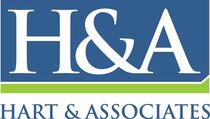|
Recent security breaches at Equifax and other companies have left many people thinking once again about identity theft. The best thing is to do everything you can to prevent it from happening to you. Here are a few tips to help you reduce your risk of being a victim of identity theft as well as how to reduce the damage from security breaches of your personal data from sources you can’t control. Discontinue paper statements that are mailed. Paper bank, brokerage, and credit card statements that are mailed can be misboxed, intercepted, lost, or stolen, and the information can fall into dishonest hands. Instead, discontinue paper statements, and access them via your online account where you can review, print, or save them each month for your records. Rent a private mail box. If you have trouble with mail theft in your area and cannot check your mailbox as soon as the mail is delivered, consider renting a post office box or a private mail box. These are especially handy if you travel a lot or have many packages delivered and no one is home to sign for them. They cost up to $300 per year, and you can find them at places like The UPS Store, Mailboxes Etc., Postal Annex, or your local post office. Shred your trash. If you throw out junk mail offers for new credit cards or bank accounts, be sure to shred that paper and anything else that might contain private information. Don’t email secure data. Credit card numbers, social security numbers, and passwords should not be sent via email unless the email is encrypted or secure. The odds of something happening are low, but could happen. Use different passwords for different account groups. Even the most secure-minded person uses the same password for many different accounts. You can too, but be smart about it. Use a unique password for your bank that you do not use anywhere else. Be smart about your password use, and make your password difficult based on the level of information that is at risk. Choose hard passwords. It is painful, but choosing long, hard passwords can help throw off thieves. Include at least one capital letter, one special character, and one number in your password. Make it nice and long. And do not use common words, your birthday, parts of your social security, or your phone number in your password. When it is provided, use a random password generator. And do not let your browser automatically save your banking passwords for you. Close inactive accounts. If you no longer use an account you signed up for, close it rather than let it linger. It will reduce your risk. Be mindful, though; if you close some credit card accounts, your credit score could be adversely affected even if there has been no activity for a while. Consider freezing your credit. If you do not need a new credit card or loan or are not planning a large purchase soon, consider freezing your credit. When you credit is frozen or secure, no one can run checks against it. Any identity thieves would not be able to take a loan out in your name. Avoid unsecured Wi-Fi. Although the ambience is nice at a Starbucks, the Wi-Fi is not secure, and connecting and doing your work all day long there is a big security risk. Consider signing up for a private, secure VPN service instead. Monitor all account activity. Check your bank and credit card accounts frequently, and turn on all alerts and fraud notifications. You can turn on alerts for when transactions exceed a dollar amount and when your bank balance goes below a certain amount. Getting emails or text messages on your activity can help you stay on top of things. Consider identity theft insurance. Identity theft insurance is now common, and you can get it and fraud protection for your business as well as for individuals. If you are a victim, it reimburses you for the cost of restoring your credit. Check with your local insurance agent for more information. We hope it never happens to you. Try these tips to reduce your risk of identity theft. This is general information and should not be acted upon without first determining its application to your specific situation. Please contact your attorney, CPA or tax advisor for additional details.
Comments are closed.
|
AuthorSuccessfully meeting the challenges inherent to new and smaller businesses provides me with a special type of satisfaction. Archives
February 2022
Categories
All
|


 RSS Feed
RSS Feed







